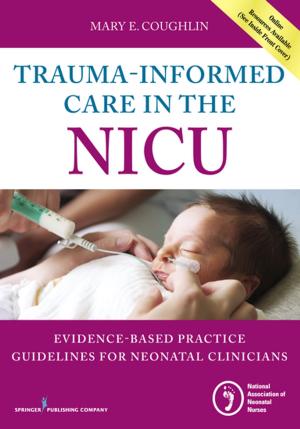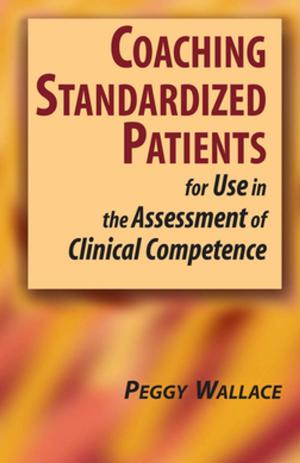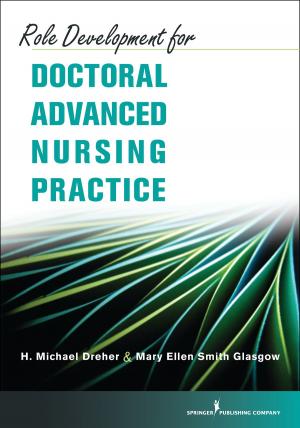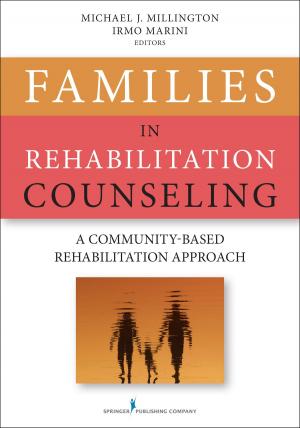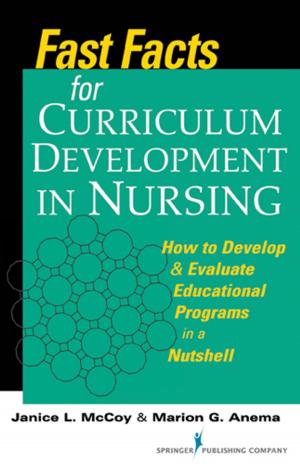Understanding Adolescents for Helping Professionals
Nonfiction, Health & Well Being, Psychology, Child & Adolescent, Adolescent Psychology, Child Psychology, Social & Cultural Studies, Social Science, Social Work| Author: | Dr. Avidan Milevsky, PhD, LCPC | ISBN: | 9780826125071 |
| Publisher: | Springer Publishing Company | Publication: | December 3, 2014 |
| Imprint: | Springer Publishing Company | Language: | English |
| Author: | Dr. Avidan Milevsky, PhD, LCPC |
| ISBN: | 9780826125071 |
| Publisher: | Springer Publishing Company |
| Publication: | December 3, 2014 |
| Imprint: | Springer Publishing Company |
| Language: | English |
Promotes an in-depth understanding of adolescent development that can be immediately applied to effective treatment
Adolescence is a distinct and complex stage of development, and successful interventions with this population require an in-depth understanding of the many forces affecting them. This is a practical, thorough, yet concise survey of adolescent development for early career professionals in psychology, mental health counseling, social work, marriage and family therapy, education, and nursing. Based on in-depth theoretical and empirical understanding of adolescent physical, cognitive, social, and emotional development, the text demonstrates how this knowledge can be applied immediately to treating adolescents in any setting. The only book of its kind, it is a welcome alternative to purely clinical books because its strategic focus is on understanding normal adolescent development and appreciating the crucial difference between adolescent developmental issues versus clinical issues. Comprehending this important difference is an integral aspect of successful interventions with adolescents.
The book provides an overview of historical perspectives, major theories and research, and current best practices in the profession. It addresses topics in adolescent development, with a particular emphasis on how physical, cognitive, and socioemotional developments interact in an integrative process. Particularly helpful features include a section in each chapter, "Adolescent Development in the Real World," which highlights interviews with professionals who, in their daily work, apply the concepts discussed in the text. The "In Their Own Words" feature provides interviews with adolescents from various gender and ethnic groups, providing first-person accounts of how specific issues are manifested in life. Other hallmarks of this text include easy-to-understand language, discussion-oriented critical thinking tasks, and suggestions for further reading. Readers will come away with a deep theoretical and empirical understanding of adolescent development, as well as how to apply and implement these concepts in any adolescent or adolescent-related mental health setting.
KEY FEATURES:
- Presents concise yet in-depth coverage of adolescent development with a focus on applying this knowledge in practice
- Facilitates a deep theoretical and empirical understanding of the key concepts in physical, cognitive, and socioemotional adolescent development
- Emphasizes the interaction of physical, cognitive, and socioemotional development
- Includes interviews with professionals who demonstrate how they apply the book's concepts in their work with adolescents
- Provides first-person accounts from adolescents from different cultural, ethnic, and sexual orientations
Promotes an in-depth understanding of adolescent development that can be immediately applied to effective treatment
Adolescence is a distinct and complex stage of development, and successful interventions with this population require an in-depth understanding of the many forces affecting them. This is a practical, thorough, yet concise survey of adolescent development for early career professionals in psychology, mental health counseling, social work, marriage and family therapy, education, and nursing. Based on in-depth theoretical and empirical understanding of adolescent physical, cognitive, social, and emotional development, the text demonstrates how this knowledge can be applied immediately to treating adolescents in any setting. The only book of its kind, it is a welcome alternative to purely clinical books because its strategic focus is on understanding normal adolescent development and appreciating the crucial difference between adolescent developmental issues versus clinical issues. Comprehending this important difference is an integral aspect of successful interventions with adolescents.
The book provides an overview of historical perspectives, major theories and research, and current best practices in the profession. It addresses topics in adolescent development, with a particular emphasis on how physical, cognitive, and socioemotional developments interact in an integrative process. Particularly helpful features include a section in each chapter, "Adolescent Development in the Real World," which highlights interviews with professionals who, in their daily work, apply the concepts discussed in the text. The "In Their Own Words" feature provides interviews with adolescents from various gender and ethnic groups, providing first-person accounts of how specific issues are manifested in life. Other hallmarks of this text include easy-to-understand language, discussion-oriented critical thinking tasks, and suggestions for further reading. Readers will come away with a deep theoretical and empirical understanding of adolescent development, as well as how to apply and implement these concepts in any adolescent or adolescent-related mental health setting.
KEY FEATURES:
- Presents concise yet in-depth coverage of adolescent development with a focus on applying this knowledge in practice
- Facilitates a deep theoretical and empirical understanding of the key concepts in physical, cognitive, and socioemotional adolescent development
- Emphasizes the interaction of physical, cognitive, and socioemotional development
- Includes interviews with professionals who demonstrate how they apply the book's concepts in their work with adolescents
- Provides first-person accounts from adolescents from different cultural, ethnic, and sexual orientations

